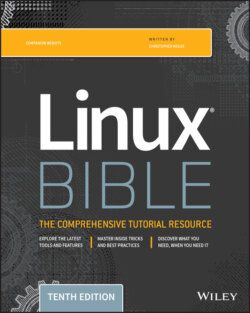Читать книгу Linux Bible - Christopher Negus - Страница 31
OSI open source definition
ОглавлениеLinux provides a platform that lets software developers change the operating system as they like and get a wide range of help creating the applications they need. One of the watchdogs of the open source movement is the Open Source Initiative, or OSI (https://opensource.org).
Although the primary goal of open source software is to make source code available, other goals of open source software are also defined by OSI in its open source definition. Most of the following rules for acceptable open source licenses serve to protect the freedom and integrity of the open source code:
Free distribution: An open source license can't require a fee from anyone who resells the software.
Source code: The source code must be included with the software, and there can be no restrictions on redistribution.
Derived works: The license must allow modification and redistribution of the code under the same terms.
Integrity of the author's source code: The license may require that those who use the source code remove the original project's name or version if they change the source code.
No discrimination against persons or groups: The license must allow all people to be equally eligible to use the source code.
No discrimination against fields of endeavor: The license can't restrict a project from using the source code because it is commercial, or because it is associated with a field of endeavor that the software provider doesn't like.
Distribution of license: No additional license should be needed to use and redistribute the software.
License must not be specific to a product: The license can't restrict the source code to a particular software distribution.
License must not restrict other software: The license can't prevent someone from including the open source software on the same medium as non-open source software.
License must be technology neutral: The license can't restrict methods in which the source code can be redistributed.
Open source licenses used by software development projects must meet these criteria to be accepted as open source software by OSI. About 70 different licenses are accepted by OSI to be used to label software as “OSI Certified Open Source Software.” In addition to the GPL, other popular OSI-approved licenses include the following:
LGPL: The GNU Lesser General Public License (LGPL) is often used for distributing libraries that other application programs depend upon.
BSD: The Berkeley Software Distribution License allows redistribution of source code, with the requirement that the source code keep the BSD copyright notice and not use the names of contributors to endorse or promote derived software without written permission. A major difference from GPL, however, is that BSD does not require people modifying the code to pass those changes on to the community. As a result, proprietary software vendors such as Apple and Microsoft have used BSD code in their own operating systems.
MIT: The MIT license is like the BSD license, except that it doesn't include the endorsement and promotion requirement.
Mozilla: The Mozilla license covers the use and redistribution of source code associated with the Firefox web browser and other software related to the Mozilla project (https://www.mozilla.org/en-US/). It is a much longer license than the others just mentioned because it contains more definitions of how contributors and those reusing the source code should behave. This includes submitting a file of changes when submitting modifications and that those making their own additions to the code for redistribution should be aware of patent issues or other restrictions associated with their code.
The end result of open source code is software that has more flexibility to grow and fewer boundaries in how it can be used. Many believe that the fact that numerous people look over the source code for a project results in higher-quality software for everyone. As open source advocate Eric S. Raymond says in an often-quoted line, “Given enough eyeballs, all bugs are shallow.”
